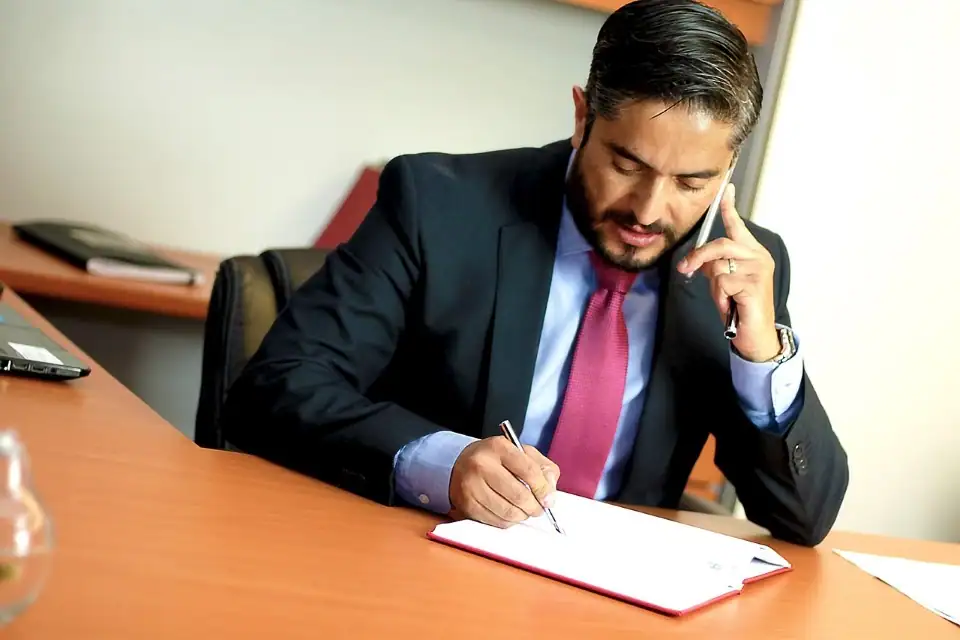Personal injury law can be a lucrative area of law to specialize in, and with the right skills and experience, becoming a personal injury paralegal can be a rewarding career choice. In this article, we will explore some proven techniques that will help current and aspiring personal injury paralegals enhance their resumes, manage personal injury cases, attract potential employers, obtain certifications, and understand salary expectations.
What is a Personal Injury Paralegal?
Understanding the Job Description
A personal injury paralegal is a legal professional who assists personal injury attorneys and lawyers with various tasks related to personal injury claims and lawsuits. The paralegal may work within a law firm, for a private practice attorney, for a court, for a government agency, or for an insurance company.
Tasks and Duties of a Personal Injury Paralegal
Personal injury paralegals assist attorneys with many different tasks, such as drafting pleadings, drafting legal documents, interviewing witnesses, gathering evidence, reviewing medical records, performing legal research, and scheduling depositions. They may also assist with trial preparation, such as drafting discovery requests, requests for production of documents, and preparing exhibits for trial.
What Skills Are Required for a Personal Injury Paralegal Job?
Personal injury paralegals must have excellent communication and organizational skills, as well as strong analytical and writing abilities. In addition, they must be able to multitask and work under pressure, as cases can be very demanding. They must be familiar with the laws and procedures related to personal injury cases and have experience with document management software such as Microsoft Office or Google Docs.
How to Enhance Your Resume for a Personal Injury Paralegal Job?
Your Personal Injury Paralegal Job Description: Incorporating Keywords
When writing your personal injury paralegal job description for your resume, make sure to focus on including keywords related to personal injury law, such as “plaintiff personal injury” and “defendant personal injury.” In addition, make sure to include other relevant terms, such as “legal,” “case management,” and “drafting legal documents.” Applicants should research the law firm or company they are applying to and tailor their resume to reflect the specific needs of that employer.
Highlight Your Personal Injury Law Experience
Personal injury law is a specialized area of law, and employers are always looking for applicants with relevant experience in this field. If you have experience working with personal injury law firms or attorneys, be sure to highlight this experience on your resume. This can include drafting pleadings, interviewing witnesses, and reviewing medical records. Employers want to see that you have a solid understanding of personal injury law and are comfortable working within the area of law.
How to List Personal Injury Paralegal Job Duties?
When listing your personal injury paralegal job duties on your resume, be as specific as possible. For example, if you assisted with drafting a motion for summary judgment or a motion in limine, make sure to highlight this on your resume. Providing specific information about your duties and responsibilities will give potential employers a better idea of your skills and experience.
What You Need to Know to Efficiently Manage a Personal Injury Case?
Overview of the Personal Injury Litigation Process
Personal injury cases can be complex and time-consuming. Understanding the litigation process is essential for efficiently managing a personal injury case. The litigation process typically involves the following stages: investigation, pre-litigation, litigation, and settlement. Personal injury paralegals may assist with all aspects of the litigation process, from initial client intake to settlement negotiations.
Gathering Medical Records for a Personal Injury Case
Gathering medical records is a critical aspect of a personal injury case. Personal injury paralegals should understand the importance of obtaining medical records and should be familiar with the laws and procedures governing the release of such records. The paralegal may assist with drafting requests for medical records, tracking down relevant providers, and reviewing records for relevance to the case.
How to Draft a Plaintiff Personal Injury Claim?
Drafting a plaintiff personal injury claim requires a strong understanding of the facts of the case, relevant laws and procedures, and excellent writing skills. Personal injury paralegals may assist with drafting complaints, outlining the facts of the case, and identifying causes of action. They may also assist with incorporating evidence into the complaint, such as medical records and witness statements.
How to Attract and Impress Employers Looking to Hire Personal Injury Paralegals?
Specialize in Personal Injury Law to Stand Out in a Crowded Market
Personal injury law is a specialized area of law, and specializing in this field can help paralegals stand out in a crowded market. Paralegals may consider obtaining certifications or additional courses in personal injury law to boost their credentials and demonstrate their expertise.
Efficiently Manage Personal Injury Case Files
Efficiently managing personal injury case files is a critical aspect of the job of a personal injury paralegal. Technologies like document management software can help paralegals organize and access case files more efficiently, reducing the risk of lost or misplaced documents.
How to Write Your Personal Injury Paralegal Job Description?
When writing a personal injury paralegal job description, it is important to be specific about the skills and experience required for the position. The job description should highlight key duties and responsibilities, such as drafting legal documents, interviewing witnesses, and reviewing medical records. Employers want to see that applicants have the skills and experience necessary to be successful in the position.
What Courses and Certifications Can Help You Succeed as a Personal Injury Paralegal?
Best Personal Injury Paralegal Courses and Certification Programs
There are many courses and certification programs available for personal injury paralegals. Some of the best courses and certification programs include the National Federation of Paralegal Associations’ Advanced Certified Paralegal (ACP) certification program in Personal Injury Litigation, the National Association of Legal Assistants’ Certified Paralegal (CP) certification program, and various online courses and webinars offered by personal injury law firms.
The Importance of Understanding Medical Terminology as a Personal Injury Paralegal
Personal injury cases often involve complex medical terminology, and understanding this terminology is essential for success as a personal injury paralegal. Paralegals may consider taking courses or attending webinars on medical terminology, or obtaining a certification in medical terminology.
How to Stay Up-To-Date on Personal Injury Case Management Techniques?
Personal injury case management techniques are constantly evolving, and it is essential for personal injury paralegals to stay up-to-date on the latest practices and trends. Paralegals may consider attending industry conferences, joining professional organizations, or taking continuing education courses to stay informed.
What is the Personal Injury Paralegal Salary Expectation?
Factors that Influence Your Personal Injury Paralegal Salary
There are several factors that can influence a personal injury paralegal’s salary, including location, level of experience, education level, and certification status. According to the Bureau of Labor Statistics, the median annual wage for paralegals and legal assistants was $52,920 as of May 2020.
How to Negotiate Your Personal Injury Paralegal Salary?
When negotiating a personal injury paralegal salary, it is important to do your research and come prepared with data on salaries in your area and industry. You may also consider negotiating for additional benefits, such as health insurance or a flexible work schedule.
Using a Personal Injury Paralegal Salary Template for Benchmarking
A personal injury paralegal salary template can be a helpful tool for benchmarking your salary against other paralegal salaries in your area and industry. You can use this data to negotiate your salary or to determine if you are being paid fairly for your skills and experience.
Q: What is personal injury paralegal job duty?
A: Personal injury paralegals play an important role in plaintiff personal injury law. They provide high-level legal support to the attorney they work with, including conducting an overview of the case, the litigation process, case management, and drafting settlement documents.
Q: What education is needed for a personal injury paralegal job?
A: Personal injury paralegals typically have completed paralegal studies with a bachelor’s degree. However, some firms may accept candidates with equivalent years of experience.
Q: What skills should you have to excel in personal injury paralegal job?
A: You must have excellent communication skills, be intuitive, value confidentiality, and have experience answering phones and corresponding with potential clients.
Q: What is the value of paralegal support in a solo practice?
A: Paralegal support in a solo practice allows the attorney to focus on practicing law and attracting the best cases. A paralegal can provide administrative support, documentation preparation, and conduct high-level research that can assist the attorney in a fast-paced environment.
Q: What is the role of medical terminology in personal injury paralegal job?
A: Personal injury paralegals must have knowledge of medical terminology as they deal with medical records that pertain to injuries caused by another party, often related to car accidents or medical malpractice.
Q: How important is confidentiality in personal injury paralegal job?
A: Confidentiality is vital in personal injury paralegal work as it deals with sensitive information related to the client’s injury and the individuals involved in the accident.
Q: Is it essential to create a template for settlement documents?
A: Yes, creating a settlement document template is essential as it saves time while drafting and ensures consistency to avoid discrepancies.
Q: What is the litigation process in personal injury law?
A: The litigation process is the process of filing a case and handling it in court. Personal injury paralegals must have a comprehensive understanding of the litigation process and have experience managing the case.
Q: What type of documentation must personal injury paralegals prepare in their job?
A: Personal injury paralegals prepare various types of documentation in their job, including medical records, correspondence, and settlement documents.
Q: What is the role of a jury in personal injury law?
A: Jurors are members of the public who hear evidence presented in court to make a decision in a legal case. Personal injury paralegals must understand the jury’s role to assist in the preparation of the case.







